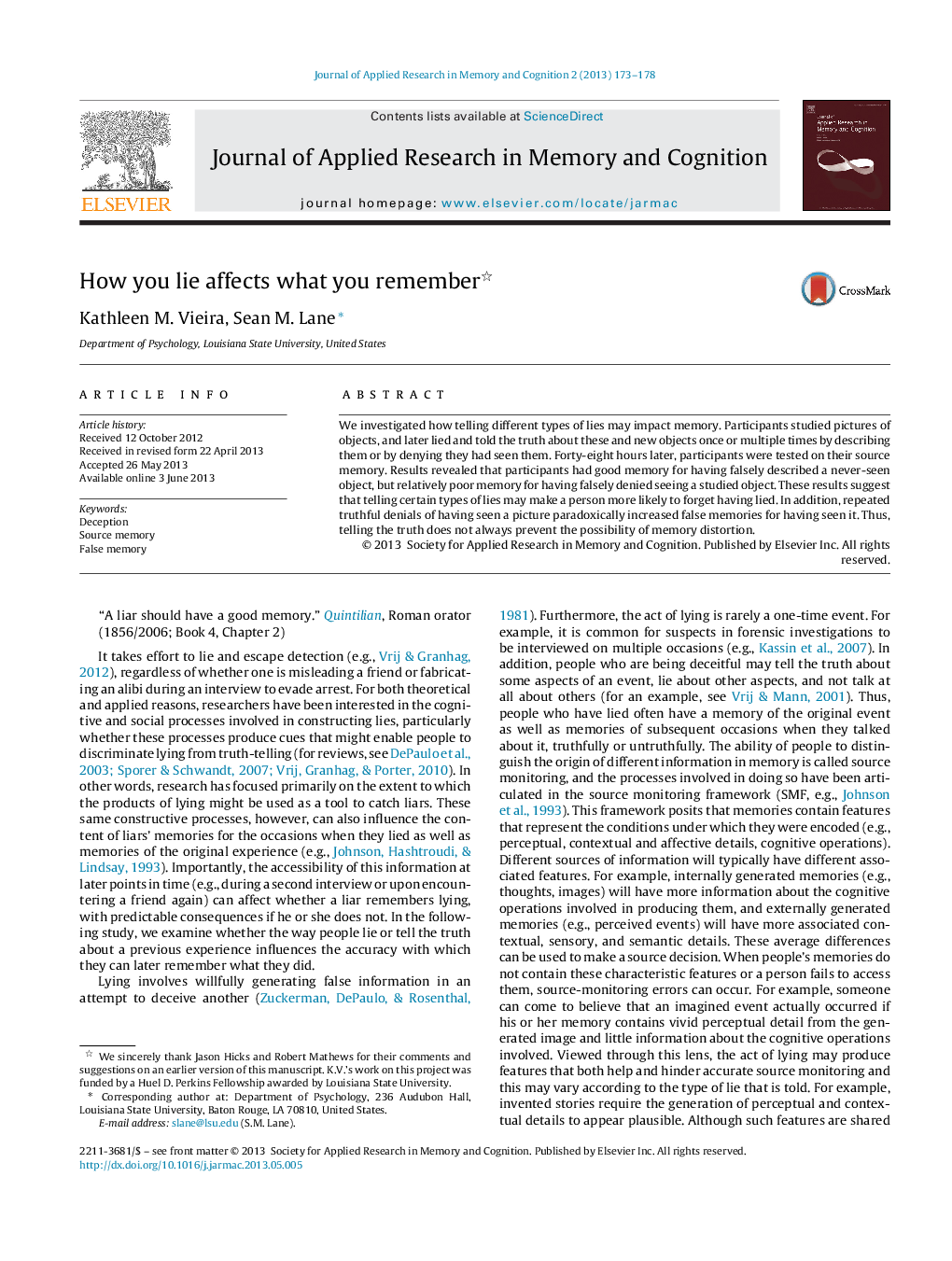| Article ID | Journal | Published Year | Pages | File Type |
|---|---|---|---|---|
| 881743 | Journal of Applied Research in Memory and Cognition | 2013 | 6 Pages |
•We investigated the impact of telling different types of lies on source memory.•Participants lied or told the truth about previously studied and new objects by describing them or denying they had seen them.•Memory for having provided a false description was relatively good, but memory for having made a false denial was poorer.•Some types of lies may be more easily forgotten and thus lead liars to contradict themselves at a later time.•Repeatedly truthfully denying having seen an unstudied object paradoxically increased false memories for having seen it.
We investigated how telling different types of lies may impact memory. Participants studied pictures of objects, and later lied and told the truth about these and new objects once or multiple times by describing them or by denying they had seen them. Forty-eight hours later, participants were tested on their source memory. Results revealed that participants had good memory for having falsely described a never-seen object, but relatively poor memory for having falsely denied seeing a studied object. These results suggest that telling certain types of lies may make a person more likely to forget having lied. In addition, repeated truthful denials of having seen a picture paradoxically increased false memories for having seen it. Thus, telling the truth does not always prevent the possibility of memory distortion.
